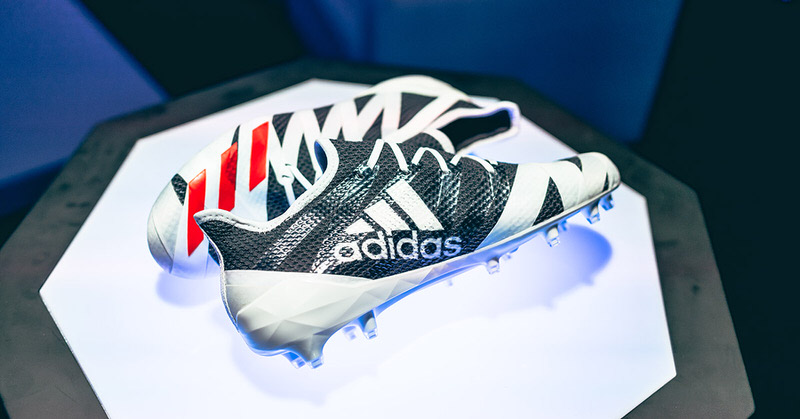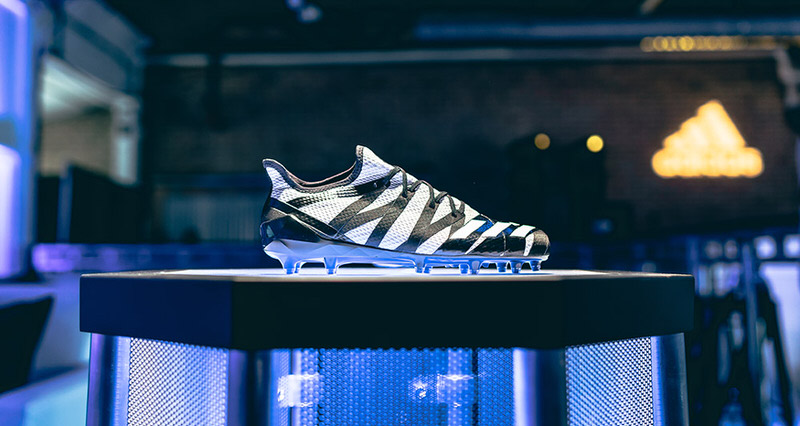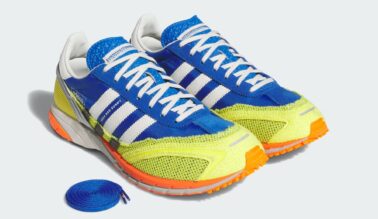This post may contain affiliate links. Please read our disclosure policy.
As innovation continues to change the look and functionality of footwear, one thing that is rapidly evolving is the manufacturing and distribution models of shoes. For years, when one discussed innovation in the space, often what was discussed was a new technology for cushioning or perhaps a new material that was used as a component of the product, but Adidas is revolutionizing the way shoes are manufactured to make them faster than ever before and closer to their user.
Since the ‘40s, German sportswear juggernaut has changed sport, but with the introduction of SPEEDFACTORY at the end of 2015, all sports got their products faster than ever before. By 2016 sneaker heads saw their first kicks come from the new manufacturing outfit located in Ansbach, Germany with the Futurecraft MFG – Made For Germany.
Adidas Futurecraft MFG (Photo: Adidas)Soon after, Adidas unveiled the AM4 (Adidas Made For) series that kicked off with a long term SpeedFactory project bringing to light city specific running shoe projects for the likes of London and Paris with the demands of global cities New York, Los Angeles, Tokyo, and Shanghai to soon follow.
The footwear coming out of adidas’ SpeedFactory is data driven and digitally produced. Essentially, adidas SpeedFactory are the company’s best-in-class products, focusing on fit, comfort and movement. adidas designers utilized athlete foot scans and ARAMIS motion capture technology used by NASA to understand the precise details of how an athlete’s foot moves while running for the AM4PAR and AM4LDN shoes, as well as for needs of football players during a game for the AM4MN cleats. The result is the creation of a series of FIT patches (those cross-weave bands on the upper) that have been strategically placed across different parts of the shoes and the cleats to harnesses movement, provide stability and support, and deliver a precision fit that is specifically tuned for elite performance.
While Adidas has made a commitment to reduce its carbon footprint through manufacturing and to increase the speed of production as global initiatives, a major commitment by Adidas America’s CEO Mark King to US cleated sports did not get lost in the process or in the opportunity to utilize SpeedFactory. On the biggest stage in US Football, Adidas called the SpeedFactory into action with AM4MN (Adidas Made For Minnesota) producing cleats for Adidas’ top US Football athletes for the biggest game in the sport – Super Bowl LII.

With a production speed three-times as fast as the rest of the pack, the AM4MN cleats were put into production at the conclusion of the Conference Championship games leaving less than 14 days before the Super Bowl to deliver the highly sophisticated, technical, and individually tuned cleats to the athletes.
Utilizing an Adidas Primeknit upper and speed-spat tape, the shoes do so much with so little keeping the athlete locked in without excessive weight or material further reducing the footprint of the process of making the product.
Pharrell Williams handing Von Miller LIBERTY + JUSTICE cleats (Photo: Oscar Castillo/Adidas)Adidas hosted media, celebrities, and athletes in a Minneapolis studio for Super Bowl weekend to celebrate the AM4MN cleats. The products were on display for the first time for many of their top athletes including Dak Prescott, Aaron Rodgers, and Von Miller to see the cleats made for the big game, but also to gifted a special pair of LIBERTY + JUSTICE cleats produced by Pharrell Williams that opened discussion and dialogue beyond the game itself.
While the AM4MN cleats were produced this in the Germany SpeedFactory facility, Adidas has announced that a US-based SpeedFactory is in the works and will be able to manufacture products for athletes soon from a Georgia-based facility – a state that was represented in the National Championship game for college football.




